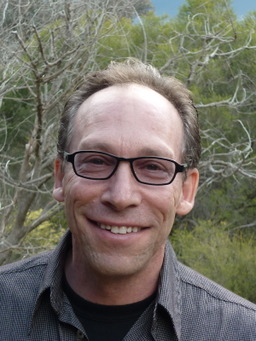
Professor Lawrence Krauss
School of Earth and Space Exploration and Physics Department
Arizona State University
will be addressing the Vancouver Institute on February 25, 2012 at 8:15 p.m., Lecture Hall No. 2 in the Woodward Instructional Resources Centre, University of British Columbia.

Professor Krauss is an internationally known theoretical physicist with wide research interests, including the interface between elementary particle physics and cosmology. He is the author of over 300 scientific publications and is the recipient of numerous awards for his research and writing. He has helped spearhead national efforts to educate the public about science, ensure sound public policy, and defend science against attacks at a variety of levels. He is the author of many acclaimed popular books, including, The Fifth Essence: The Search for Dark Matter in the Universe which was named Astronomy Book of the Year by the Astronomical Society of the Pacific, and Fear of Physics now translated into 12 languages. His book, The Physics of Star Trek, was released in November of 1995 and sold over 250,000 copies in the U.S.
(These references were compiled by the webmaster in the hope that they will prove interesting to some readers. The web being what it is, some of them will have vanished by the time you go to look them up, and there is—of course—no guarantee of their accuracy.)
Religion is a powerful force, and it has held sway against nature in many cases for millennia. But whenever religious dogma tries to overcome the facts of nature, be it the age of the universe, the existence of a big bang, evolution as the source of biological diversity, or the inner workings of human biology, knowledge and reason will slowly whittle down resistance, and reason will win out. Religious fundamentalism, as powerful a force as it often appears, is unsustainable in a world driven by science and technology.
Ultimately, the fundamental lesson of science is quite simple: the universe is the way it is, whether we like it or not. Our job as humans is to figure out how it works so that we can tailor our philosophy and our actions as biological entities sharing a planet with the rest of nature, to maximally benefit from our knowledge.
Gingrich’s wasteful, scientifically unsound plan to put
colonists on lunar soil.
by Lawrence Krauss
Newt Gingrich described himself as a visionary when he unveiled plans Wednesday to create a mammoth new space program, including a permanent colony on the moon within the next nine years. Within eight years, he pledges a new Mars rocket program—specifically, a “continually operating propulsion system) capable of getting to Mars within a remarkably short time.” He also reiterated his plan to declare at least part of the moon as U.S. territory, with colonists capable of petitioning for statehood status.
There is little doubt that Mr. Gingrich believes in big
ideas. Unfortunately, however, there is a difference between
big ideas and good ideas. After all, being a visionary
doesn’t mean abandoning practicality altogether but rather
harnessing it creatively to make new things happen.
…